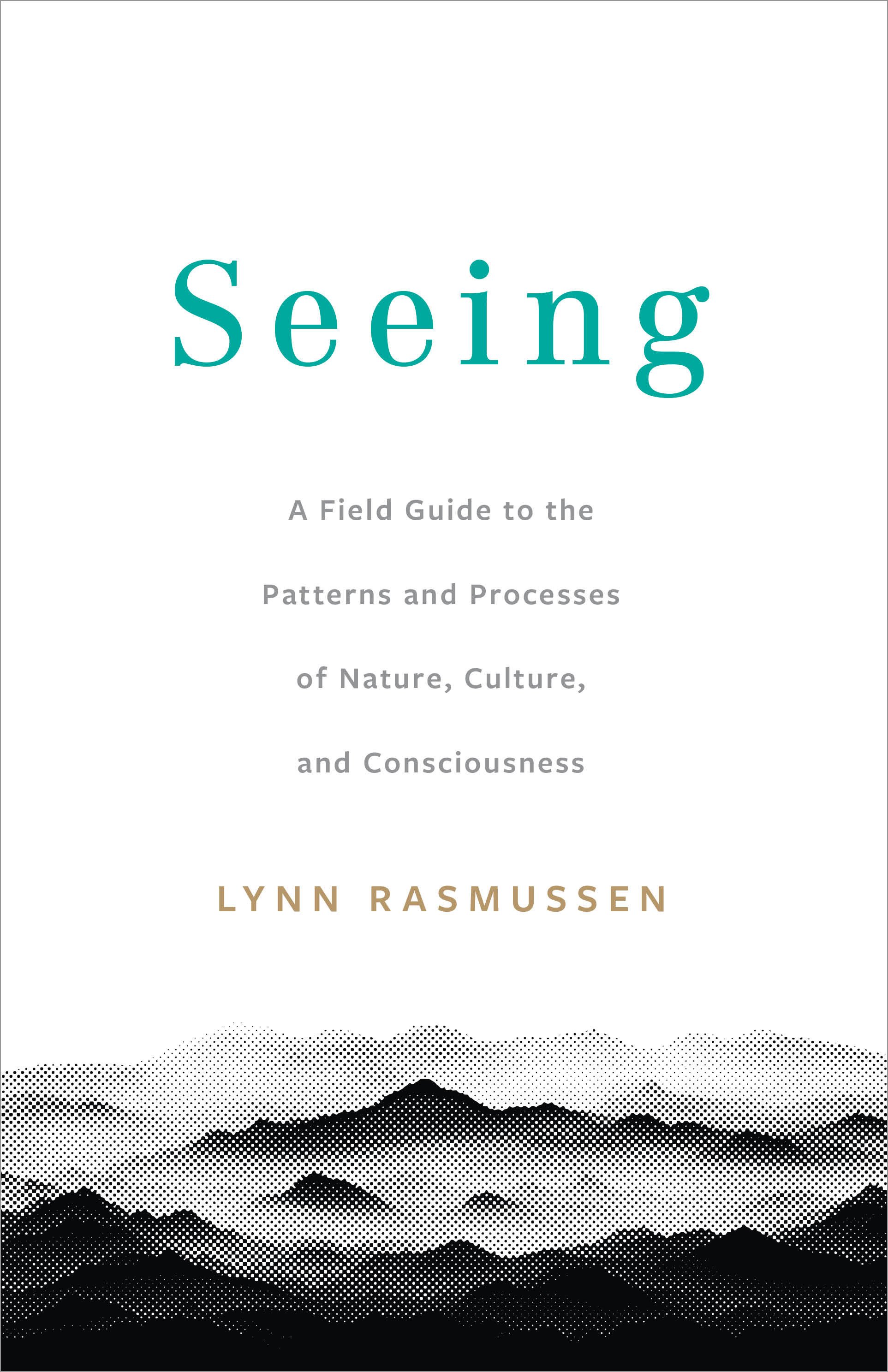This introduction to systems science, also known as complexity science, awakens new perceptions and illuminates a universal way to observe and interact with everything. The science of atoms, stars, and ecosystems, of politics, economics, and technology, and of the Golden Rule, the Middle Way, and karma describes how all is using energy and information to organize into networks within networks, cycling and syncing, evolving and emerging.
Seeing, the first field guide to these patterns and processes, offers a world alive with change and possibility for ourselves, families, communities, technologies, and environment.
Systems theorist and researcher Lynn Rasmussen distills the work of hundreds of systems scientists, complexity theorists, and systems thinkers to illustrate how a foundational understanding of Nature's patterns and processes can illuminate and guide our capacity to evolve ourselves and our world.
Written simply and clearly, using 157 images, graphics, and tables, Seeing appeals to both novices and experienced theorists and practitioners.
Order at your local bookstore, bookshop.org, B&N, Apple Books, and more.
Book Description
Welcome to a science for this century. This introduction to systems science, also known as complexity science begins with: “Everything—from an atom to a cell to the Universe—is made up of the same patterns. Understand how these patterns organize Nature’s systems, and you can better and more creatively organize your thinking and reasoning and the systems in which you live.”
Seeing is a reference book, much like a field guide to birds. The first chapter provides a brief overview of the emerging science of systems, also known as complexity science, and describes the limitations of English for expressing this worldview. Using 157 images, graphics, and tables, the next 19 chapters of Seeing describe 19 “systems processes”–networks, feedback, cycle, hierarchy, flows, evolution, and more–using definitions from the literature; the field guide’s definition; what they’re also called in the different sciences and in life; examples from Nature, human life, and techology; their features and functions; how they can be modeled; and how they interact with other systems processes. The next three chapters define more deeply what a systems process is, what a system is, and a brief overview of systems science. The final four chapters provide examples of how systems processes can be applied to Nature, consciousness, and culture.
Book Details
Seeing: A Field Guide to the Patterns and Processes of Nature, Culture, and Consciousness
by Lynn Rasmussen
Publication date: September 4, 2024
Published by The Maui Institute LLC
Distributed by Ingram. Available on Amazon and other booksites.
Edited by Marie Timell
Cover and book design by Sheila Parr
5.5” x 8.5” softcover; 340 pages; 157 images, graphics, and tables
ISBN: 979-8-9901987-0-8 (paperback)
ISBN: 979-8-9001987-1-5 (epub)
LCCN: 2024913193
Subjects (Ingram): 1. SCIENCE/Systems Theory 2. SCIENCE/Chaotic Behavior in Systems 3. BODY, MIND AND SPIRIT/General
Categories (Amazon): 1. Books › Science & Math › Physics › System Theory 2. Books › Science & Math › Nature & Ecology › Reference 3. Books › Politics & Social Sciences › Philosophy › Consciousness & Thought
Contact by email: Lynn at MauiInstitute.org
Systems Thinking Ontario online book launch 9.12.24
An interview with Maileen Hamto for Colors of Influence Book Talk, 2.13.25
A 9-minute presentation for Research Snapshots 2025 - Systems Engineering Scientific Foundations INCOSE IW
A 2-hour conversation wtih Laura Lee and Paul Robear of the Cuyamungue Institute
Meet Lynn Rasmussen
Lynn Rasmussen’s fascination with systems science led her to 25 years of extensive research and ongoing conversations with many of today’s cutting-edge systems theorists. Educated in public health and psychology, she has applied a systemic worldview to coaching highly creative people, nonprofit and business development, and personal relationships. Lynn co-founded the Maui Institute to apply systems science to observations, ideas, and actions on her island home and in the world. Learn more at MauiInstitute.org and on Substack at mauiinstitute.substack.com.

